Author: Francesco, Castle Labs
Translation: Jinse Finance Xiaozou
The announcement that Ethereum will double its investment in the AI field and establish a dAI (decentralized AI) team has surprised many.
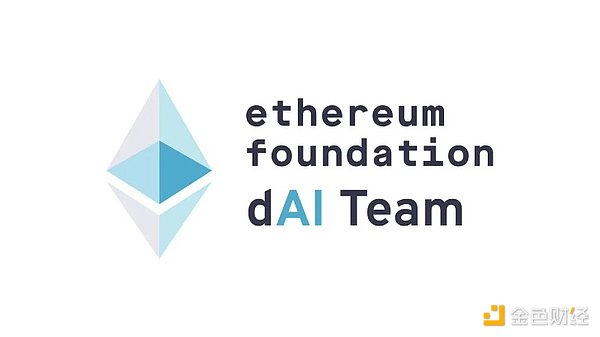 The team is led by Davide Crapis and is dedicated to "making Ethereum the preferred settlement and coordination layer for AI."
The team is led by Davide Crapis and is dedicated to "making Ethereum the preferred settlement and coordination layer for AI."
In practice, the dAI team will focus on the following two specific directions:
- Decentralization of infrastructure: With the rise of AI giants, it is necessary to avoid over-reliance on a few centralized entities and ensure that AI operates on a decentralized technology stack.
- Decentralization of the AI economic system: Beyond the underlying infrastructure, it is crucial to ensure that execution, coordination, and alignment among agents are achieved in a decentralized, permissionless manner without third-party intervention.
The two core components of Ethereum's unique value proposition are its trusted block space neutrality and censorship resistance; therefore, observing the creation of AI agents that align with this philosophy will be highly significant.
In the team's official words, their goal is to "connect two fields that have been developing in parallel for a long time."
Through this move, both sides can achieve a win-win situation:
- AI agents become safer, more trustworthy, and more decentralized.
- Ethereum becomes the primary settlement layer, ushering in a new era of efficiency led by AI agents.
Thus, this is not just another way to launch AI agents… it also creates completely neutral, verifiable, and censorship-resistant agents.
The dAI team will not operate in isolation but will closely collaborate with the Ethereum Foundation's protocol and ecosystem teams to ensure a profound impact. This will open up interesting design spaces—AI agents can ultimately be entrusted with tasks such as asset management and applied to more use cases.
The plan has already generated a ripple effect, and we are beginning to see signs of it. For example, the dAI team has released a supplementary proposal for ERC-8004, aimed at achieving a trustless agent architecture.
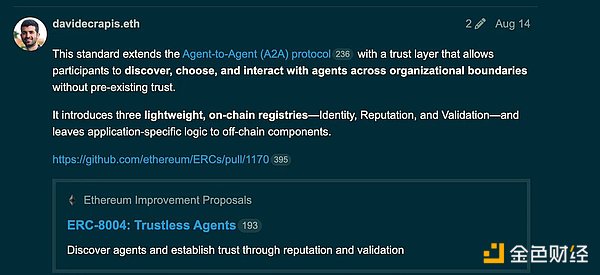
The newly deployed x402 adds native encrypted payment functionality to Google's recently launched A2A agent communication protocol.
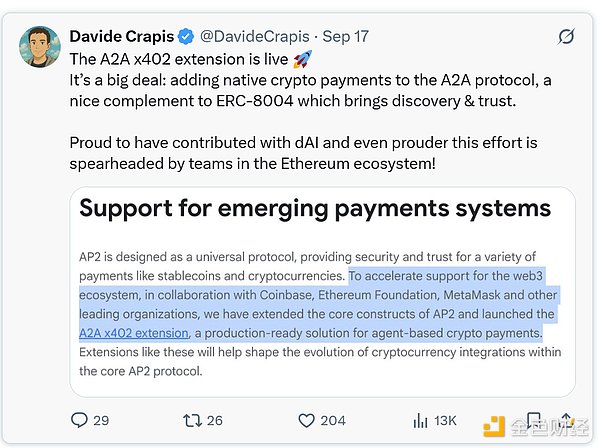 For AI agents, this means:
For AI agents, this means:
- On-chain settlement capabilities
- The ability to use the trustless and verifiable credential system of ERC8004
- A universal standard for encrypted payments between agents
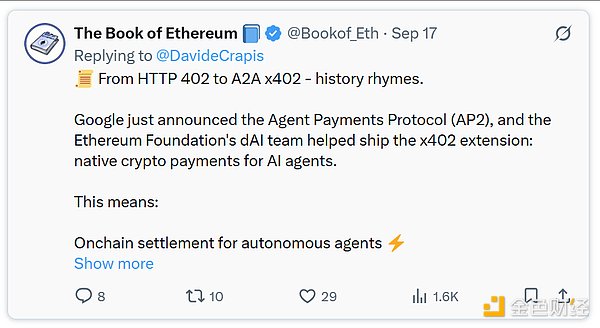
This proposal has received widespread support from ecosystem participants such as MetaMask, which announced a close collaboration with Google.
"We believe that a unified interoperability payment standard is crucial for agents to buy and sell digital resources and services."
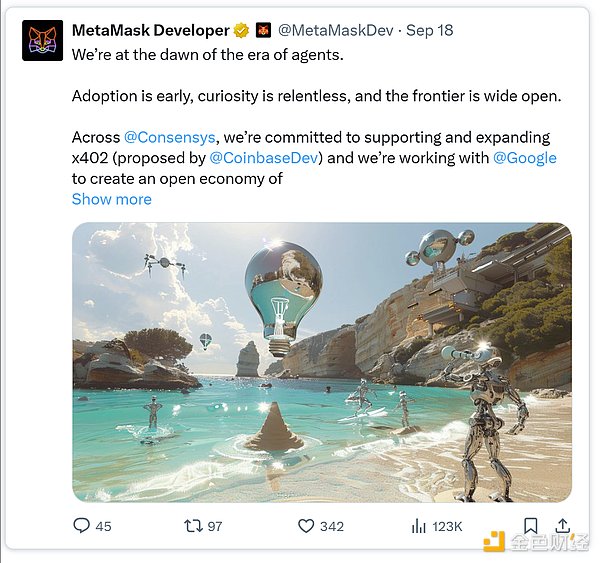
How will MetaMask utilize this technology?
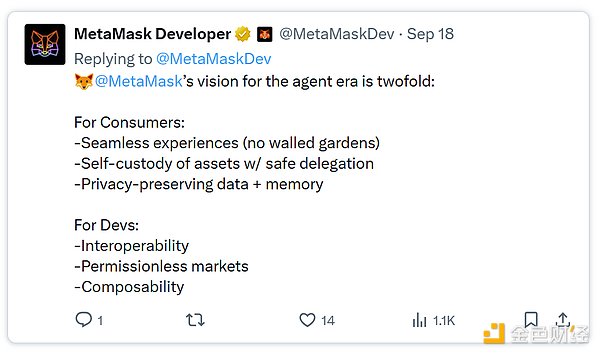
ConsenSys has also committed to "implementing multi-asset, multi-chain, and self-custody level support for x402 in our product stack."
Instances have already been realized—DINBuild supports "x402 micropayment functionality, allowing agents to autonomously purchase RPC access as needed."
Some hackathon projects have begun building tools around ERC8004.
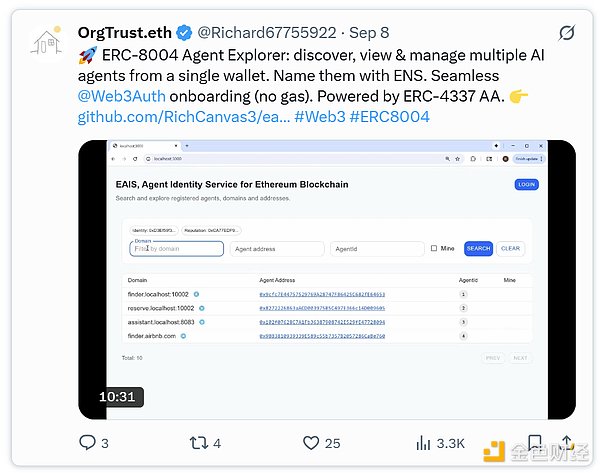 Additionally, Ethereum has partnered with Virtuals to launch a series of official workshops for developers and deploy new types of agents using the Virtual platform.
Additionally, Ethereum has partnered with Virtuals to launch a series of official workshops for developers and deploy new types of agents using the Virtual platform.
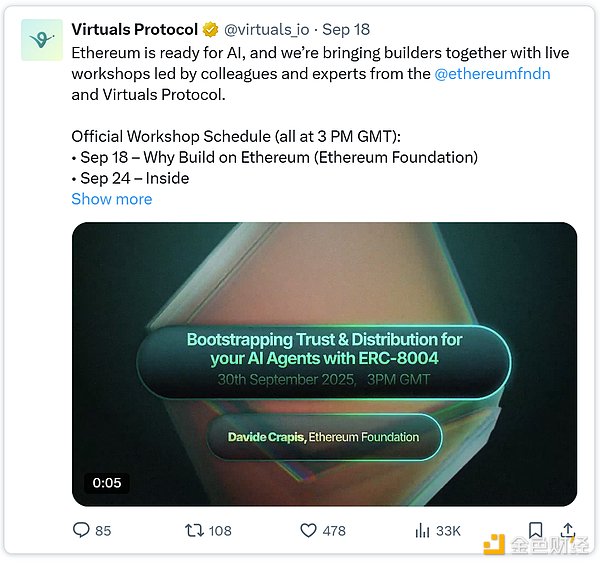
免责声明:本文章仅代表作者个人观点,不代表本平台的立场和观点。本文章仅供信息分享,不构成对任何人的任何投资建议。用户与作者之间的任何争议,与本平台无关。如网页中刊载的文章或图片涉及侵权,请提供相关的权利证明和身份证明发送邮件到support@aicoin.com,本平台相关工作人员将会进行核查。




